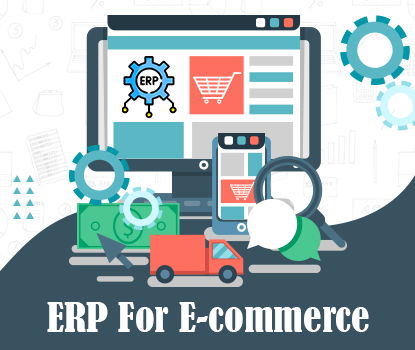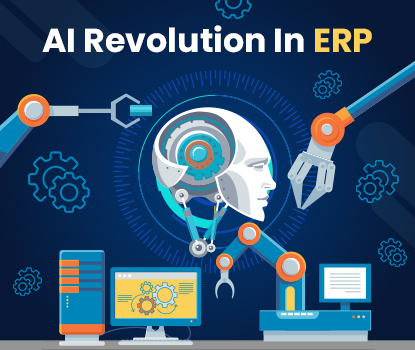Welcome to the Customer Relationship Management (CRM) arena, where data transforms into meaningful relationships to assist businesses to flourish by putting customers at the center of their strategies. In this comprehensive guide to CRM explained in detail, we embark on a journey through the intricate landscape of CRM, unraveling its significance, capabilities, and the transformative power it holds for modern enterprises.
CRM isn't just a buzzword; it's a strategic approach backed by technology and data. Whether you're a seasoned business leader seeking to refine your CRM strategy or a curious newcomer eager to understand the foundational principles, this guide is your compass.
We'll navigate through the fundamental concepts, explore diverse CRM systems and functionalities, and unveil the real-world impact of CRM on customer interactions, sales, marketing, and beyond. Together, we'll discover how CRM empowers businesses to create lasting, profitable relationships with their most valuable asset—their customers.
Join us on this enlightening expedition into the captivating world of CRM explained in this article, where data meets destiny and success by understanding, engagement, and connection.
CRM Explained
CRM, or Customer Relationship Management, is a strategic approach, as well as a set of technologies and tools, that businesses use to manage and analyze interactions with their current and potential customers. The primary goal of CRM is to improve and enhance relationships with customers, which ultimately leads to increased customer satisfaction, loyalty, and revenue for the business.
Key Components of CRM
Customer Relationship Management (CRM) is a multifaceted approach to managing interactions with current and potential customers. It encompasses various key components that work together to improve customer relationships and drive business growth. Here are the key components of CRM:
-
Contact Management
This component involves collecting and organizing customer information, including names, addresses, phone numbers, email addresses, and social media profiles. Contact management ensures that businesses have accurate and up-to-date customer data.
-
Lead Management
Lead management is crucial for tracking potential customers or leads as they move through the sales pipeline. CRM systems help businesses capture, qualify, and prioritize leads, ensuring that sales teams focus on the most promising opportunities.
-
Sales Automation
CRM software streamlines the sales process by automating tasks such as lead assignment, opportunity tracking, and quote generation. It helps sales teams manage their pipelines more efficiently and close deals faster.
-
Marketing Automation
CRM systems often include marketing automation capabilities, allowing businesses to create, execute, and track marketing campaigns. This component helps in lead nurturing, email marketing, and personalized customer communications.
-
Customer Support and Service
CRM systems enable businesses to provide top-notch customer support by managing support tickets, inquiries, and service requests. They also help track customer interactions and provide a 360-degree view of customer history.
-
Analytics and Reporting
CRM software provides analytics tools that allow businesses to analyze customer data, track key performance indicators (KPIs), and generate reports. This component helps in making data-driven decisions and measuring the effectiveness of sales and marketing efforts.
-
Workflow Automation
Workflow automation in CRM systems helps streamline processes by automating repetitive tasks and routing customer requests to the appropriate teams or individuals. It enhances efficiency and ensures consistency.
-
Integration Capabilities
CRM platforms often integrate with other business systems, such as email marketing tools, e-commerce platforms, and accounting software. Integration ensures that customer data is synchronized across all systems, eliminating data silos.
-
Mobile Accessibility
Many CRM solutions offer mobile apps or responsive web interfaces, enabling users to access customer data and perform tasks while on the go. This is essential for sales and support teams working in the field.
-
Social Media Management
CRM systems may include social media monitoring and engagement features, allowing businesses to track mentions, respond to inquiries, and analyze social media interactions with customers.
-
Customer Self-Service
Some CRM systems provide self-service portals or knowledge bases that allow customers to find answers to their questions and solve common issues without contacting customer support.
-
Personalization
CRM software helps businesses personalize interactions with customers by storing and utilizing customer preferences, purchase history, and behavior data. Personalization enhances the customer experience and boosts engagement.
-
Data Security and Privacy
CRM systems prioritize data security and compliance with privacy regulations. They often include features for user permissions, data encryption, and audit trails to protect sensitive customer information.
-
Scalability
CRM solutions should be scalable to accommodate the evolving needs of businesses as they grow. Scalability ensures that the CRM system remains effective as the customer base expands.
-
Training and Support
Effective CRM implementations include training and support for users to ensure that they can utilize the system efficiently. Training materials, documentation, and customer support services are essential components.
Types of CRM
Customer Relationship Management (CRM) systems come in several types, each designed to cater to specific business needs and industries. Here are the common types of CRM systems:
-
Operational CRM
- Sales Automation: This type focuses on automating sales-related processes. It helps sales teams manage leads, opportunities, contacts, and accounts. Sales automation CRM systems often include features for contact management, pipeline tracking, and quote generation.
- Marketing Automation: Operational CRM for marketing automates marketing campaigns, email marketing, lead scoring, and customer segmentation. It aims to streamline marketing efforts and improve lead conversion rates.
- Service Automation: Service-focused operational CRM assists customer support and service teams in managing service requests, inquiries, and case resolution. It helps ensure timely responses and efficient service delivery.
-
Analytical CRM
Analytical CRM is all about data analysis. It involves collecting and analyzing customer data to gain insights into customer behavior, preferences, and trends. These insights are used to make informed business decisions and develop targeted marketing strategies.
-
Collaborative CRM
Collaborative CRM emphasizes communication and collaboration between various departments within an organization. It focuses on sharing customer information across teams like sales, marketing, and customer support to provide a unified customer experience.
-
Campaign Management CRM
This type of CRM is primarily used by marketing teams to plan, execute, and analyze marketing campaigns. It helps in managing campaign resources, tracking campaign performance, and optimizing marketing strategies.
-
Strategic CRM
Strategic CRM focuses on long-term customer engagement and loyalty. It involves building strong relationships with key customers and tailoring products or services to their specific needs. The goal is to maximize customer lifetime value.
-
Small Business CRM
Designed for small and medium-sized enterprises (SMEs), small business CRM systems are typically more affordable and offer essential features such as contact management, lead tracking, and email marketing. They cater to the specific needs and budget constraints of smaller organizations.
-
Enterprise CRM
Enterprise CRM systems are built to meet the complex needs of large organizations. They often include advanced features like multi-channel support, advanced analytics, and integration capabilities to manage extensive customer databases and diverse business processes.
-
Cloud-based CRM
Cloud-based CRM solutions are hosted in the cloud and accessed via the Internet. They offer scalability, flexibility, and cost-effectiveness since they don't require on-premises hardware and maintenance. Cloud CRM systems are suitable for businesses of all sizes.
-
On-Premises CRM
On-premises CRM software is installed and hosted on the company's servers and infrastructure. It provides complete control over data and security but requires a significant initial investment in hardware and ongoing maintenance. It's typically chosen by large enterprises with specific security or compliance requirements.
-
Open-Source CRM
Open-source CRM software provides access to the source code, allowing businesses to customize and extend the CRM system to meet their unique requirements. While it offers flexibility, it may require more technical expertise for setup and maintenance.
-
Industry-Specific CRM
Industry-specific CRM solutions are tailored to the unique needs of specific industries such as healthcare, real estate, or financial services. They come pre-configured with features and modules relevant to those industries, making implementation quicker and more effective.
Benefits of CRM
Customer Relationship Management (CRM) systems offer a wide range of benefits to businesses of all sizes and across various industries.
Let's delve into these benefits, supported by relevant statistics:
-
Improved Customer Relationships
CRM centralizes customer data, providing a holistic view of customer interactions and history. This allows businesses to offer personalized experiences and better understand customer needs. According to SuperOffice, 74% of CRM users said their CRM system offered improved access to customer data.
-
Increased Sales
CRM systems help sales teams manage leads, track opportunities, and automate sales processes. This leads to better lead conversion rates and increased sales. CRM applications can boost sales by up to 29%, as reported by Salesforce.
-
Enhanced Customer Service
CRM enables efficient handling of customer inquiries and support requests. It ensures timely responses and improves customer satisfaction. 75% of consumers expect a consistent experience when interacting with a brand across multiple channels as per Salesforce.
-
Better Marketing Strategies
CRM systems provide insights into customer behavior and preferences, enabling targeted marketing campaigns and improved ROI. CRM can increase marketing ROI by 25%, according to Nucleus Research.
-
Streamlined Sales Processes
CRM automates sales tasks, reducing administrative work and allowing sales teams to focus on selling. CRM can increase sales productivity by 34%, as reported by Salesforce.
-
Data Centralization
CRM centralizes customer data, making it easily accessible to employees across the organization, leading to better decision-making. CRM can improve data accessibility by 74%, according to Salesforce.
-
Improved Communication
CRM systems facilitate communication and collaboration among teams, leading to better coordination and customer service. A study by SuperOffice found that businesses using CRM software experienced a 26% improvement in team communication.
-
Cost Savings
CRM reduces operational costs by automating tasks and improving efficiency. CRM systems can yield a return on investment (ROI) of $8.71 for every dollar spent, as per Nucleus Research.
-
Increased Customer Retention
CRM helps identify at-risk customers and enables proactive engagement, reducing churn rates. A study by Harvard Business Review found that increasing customer retention rates by 5% can increase profits by 25% to 95%.
-
Scalability
CRM systems are scalable, adapting to the growing needs of businesses as they expand. According to Salesforce, 86% of companies with 1,000 or more employees use CRM software.
-
Mobile Access
CRM mobile apps allow employees to access data and manage customer interactions while on the go. Mobile CRM usage increases sales force productivity by an average of 14.6%, as reported by Nucleus Research.
-
Competitive Advantage
CRM provides insights into market trends and customer behavior, helping businesses stay competitive. CRM can lead to a 20% increase in customer satisfaction, according to Salesforce.
-
Data Security & Compliance
CRM systems offer data security features and help organizations comply with data protection regulations. 87% of customers believe businesses should be more transparent about how their data is used (Salesforce).
-
Customization
CRM systems can be customized to meet the unique needs of businesses and industries. 67% of CRM users believe their CRM software is customizable to their needs (Capterra).
-
Integration Capabilities
CRM systems can integrate with other business applications, streamlining processes and data exchange. CRM integration can reduce the cost of sales by 12.2%, as reported by Nucleus Research.
Conclusion
In the dynamic landscape of modern business, Customer Relationship Management (CRM) reigns supreme as a strategic imperative. This comprehensive guide has illuminated the path through the intricate world of CRM, from its fundamental concepts to its real-world impact.
CRM explained here isn't just a buzzword; it's the linchpin for nurturing lasting, profitable customer relationships. Whether you're a seasoned business leader or an aspiring entrepreneur, this guide has equipped you with the knowledge to harness the transformative power of CRM. As you embark on the journey as CRM explained here, remember that success lies in putting customers at the heart of your strategies, creating a future where connections drive excellence.




